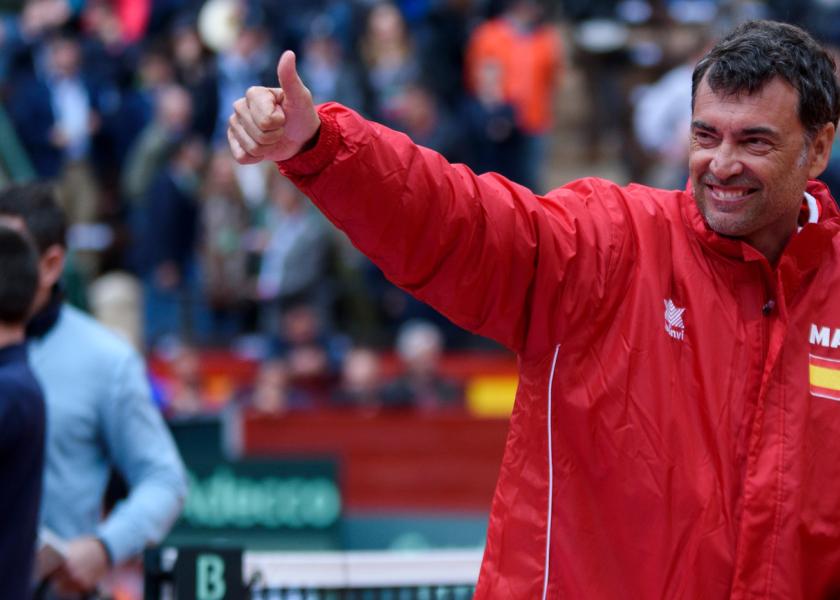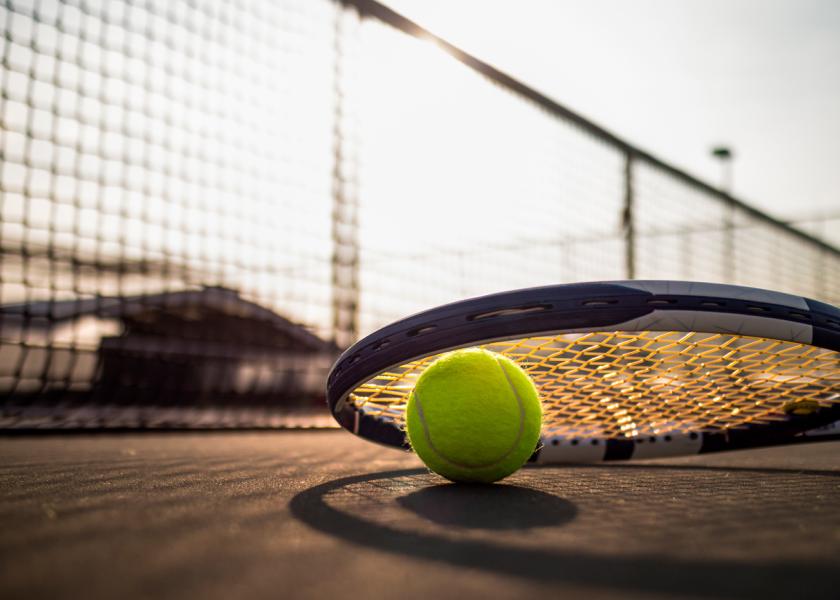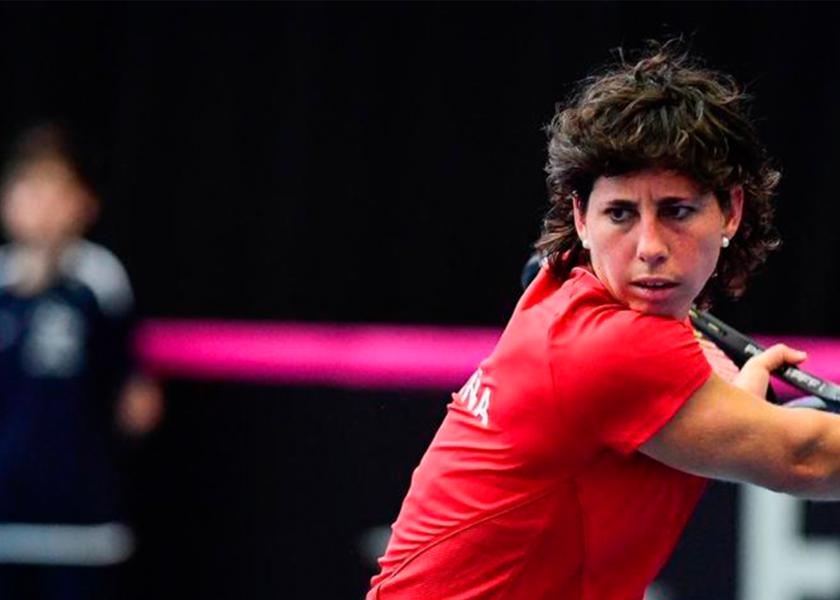Feliciano López
Talent and experience to win another Davis Cup

Three Davis Cups are enough to speak with authority about the world’s most prestigious tennis team competition. The tournament’s new format, the Spanish team’s goals and Feliciano López’s future are some of the topics we covered with him just before he focused on trying to win another ‘salad bowl’ for Spain.
Being part of the best generation in the history of tennis, with whom he has won three Cups, doesn’t seem to quench Feliciano López (Toledo, 1981)’s desire to win. Lately, the name of the Spaniard with the most salad bowls in his possession has filled the tabloids after being one of the players selected by Sergi Bruguera, captain of the Spanish team, for this new final phase of the Davis Cup. What does his immediate future hold? Is there anyone that will stand in for Feliciano, Nadal, Ferrer and the like? The La Mancha player served, rallied and rushed the net to volley each of the topics we threw at him.
How are you feeling before this Davis Cup and what are your goals?
I feel really motivated to play another Davis Cup at home, despite the new format. At a personal and professional level, I’m feeling well and, without a doubt, the goal is to win another trophy for Spain.
You already have three Davis Cups on your shelf, and you are one of the Spanish players who has won the most Cups, together with Nadal, Ferrer and Verdasco. What does this competition mean to you? Is there something special about it?
Defending the colours of my country has always been a great honour for me and I have had the good fortune to be able to savour great success with my teammates. I’m particularly motivated to play with the team and the feelings I have while playing the Davis Cup are very special, since, for the most part, we play tournaments individually throughout the year.
What do you think about the competition’s new format? Which advantages would you highlight, compared to the old one?
Despite the fact that the format is new and we have to wait some time before judging its success, I think that having the possibility to see so many countries competing at the same time will be nice. It’s true that by leaving the traditional competition model behind, where the organising country could choose the surface of the court, balls and other conditions, attracting a large number of local fans, the competition loses some of its charm, but I believe that the new Davis format will be interesting for the audience.
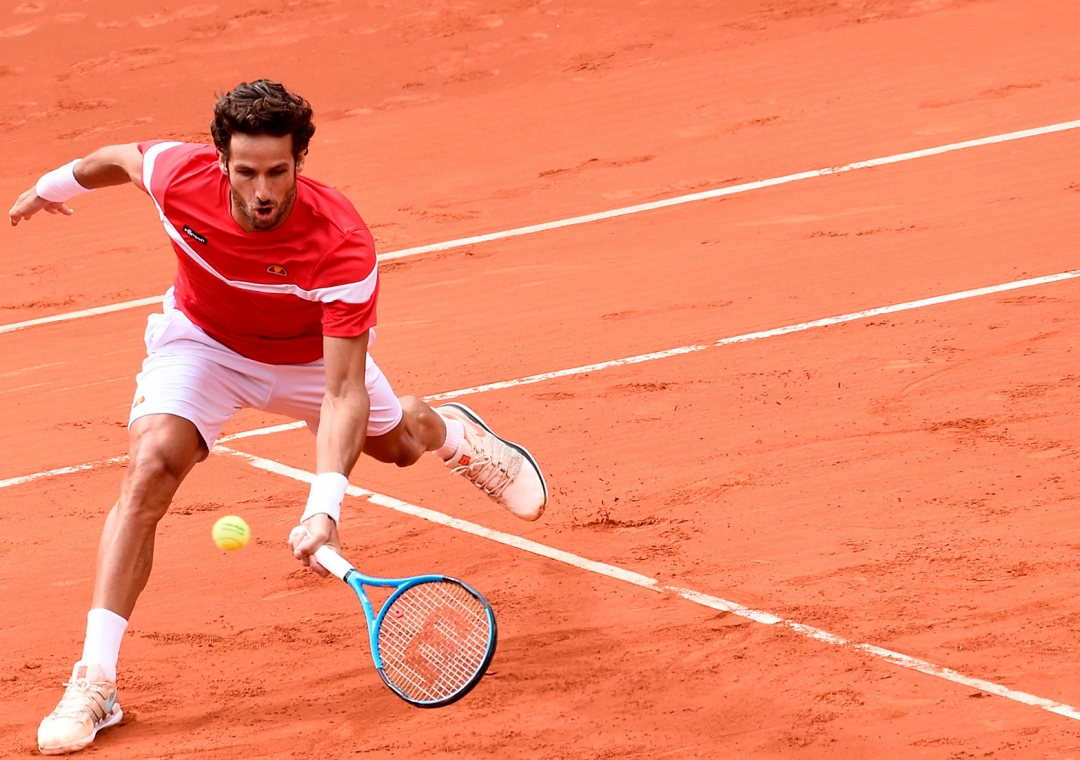
At 38 years of age, this tennis player from Toledo can still see himself competing at the highest level, both individually and as part of the Spanish team. © Getty
In this sense, Spain has traditionally benefitted from choosing clay when playing at home although, unlike other Spanish players, you have done well on grass. Do you think that the fact that clay courts haven’t been chosen for this new Davis Cup may be a disadvantage for Spain?
There is no question that Spain is a strong team on clay on the global scale and, historically, we have played on this surface at home. But the fact remains that all of our team members also play really well on hard courts, and the results prove it. It is also true that other countries have players with better performances on fast indoor courts than on clay courts, and this can make it even harder, but we feel confident that we’ll have a shot at the title.
Speaking of other countries, the draw has placed Spain in what many consider the ‘group of death’ together with Russia and Croatia. Which teams do you think will be frontrunners?
Our team is highly competitive and the qualifying rounds against Russia and Croatia will be really hard. Both are frontrunners to win the Davis Cup, but so are other great teams such as France, Serbia, Australia or the US.
Regarding your role, you have always achieved great results playing doubles. Do you think this is because of your style of play, which may conform better to doubles, or is there another reason?
I think there is no single factor, but the truth is that my game and my aggressive style work well within the doubles setting, where the serve and volley play a predominant role and some of my best shots come into the foreground. Additionally, I love this category because of the complicity I get to share with my doubles partner.
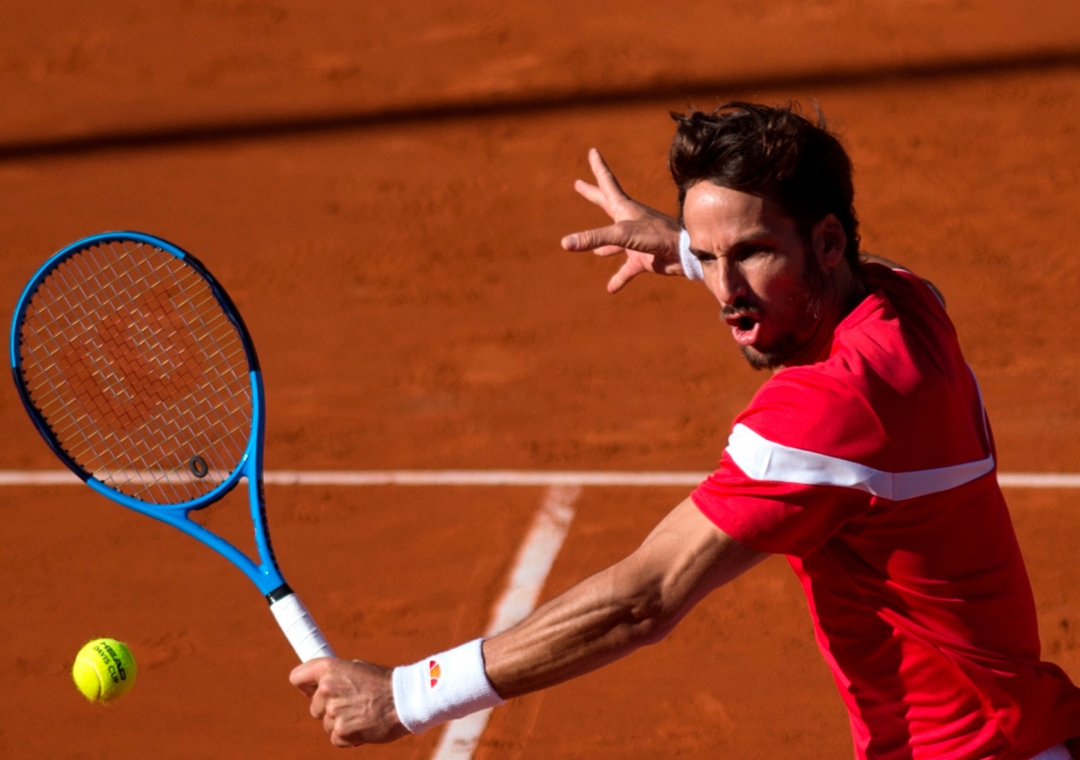
Feliciano López’s serve and volley are the highlights of his style and have made him a fundamental part of the Spanish team for many years. © Getty
Given your substantial experience, how do you think tennis has evolved in the last few years?
I think tennis has evolved in many ways, especially with the gradual introduction of technology both with regard to materials (rackets and strings, surfaces, Hawk-Eye...) and the application of new techniques. As athletes, our knowledge to improve our performance and recovery has also grown (in medicine, physiotherapy, nutrition, active training). The result is that our careers as tennis players become longer, and we get to enjoy competing at the highest level for many more years.
Looking ahead, are there good substitutes within Spanish tennis to stand in for the great generation of Feliciano, Nadal, Verdasco, Ferrer and the like in a few years’ time?
Honestly, I think this generation is unique and can’t be repeated, because it has had many years of success and, mainly, because there won’t be another Rafa Nadal. Not only in Spain, but I think we’ll be hard-pressed to see another player like him at an international level. This is why I think nothing good comes from comparing us to new generations of tennis players. We’ll certainly have good players and we must give them time to prove their potential before judging them.
“This generation is unique and can’t be repeated, because it has had many years of success and, mainly, because there won’t be another Rafa Nadal”
And you? Have we got enough Feliciano López to last a good while on the courts?
The truth is that I’m feeling really well and I’m very motivated to finish this season and start 2020. I’m aware that with each year that passes, the difficulty increases exponentially. I appreciate this and I push myself every day to be able to continue to enjoy competing with the best in the word despite the age gap. I think about my challenges year on year, although I’m happy to continue playing the circuit as long as my body and mind can take it.
